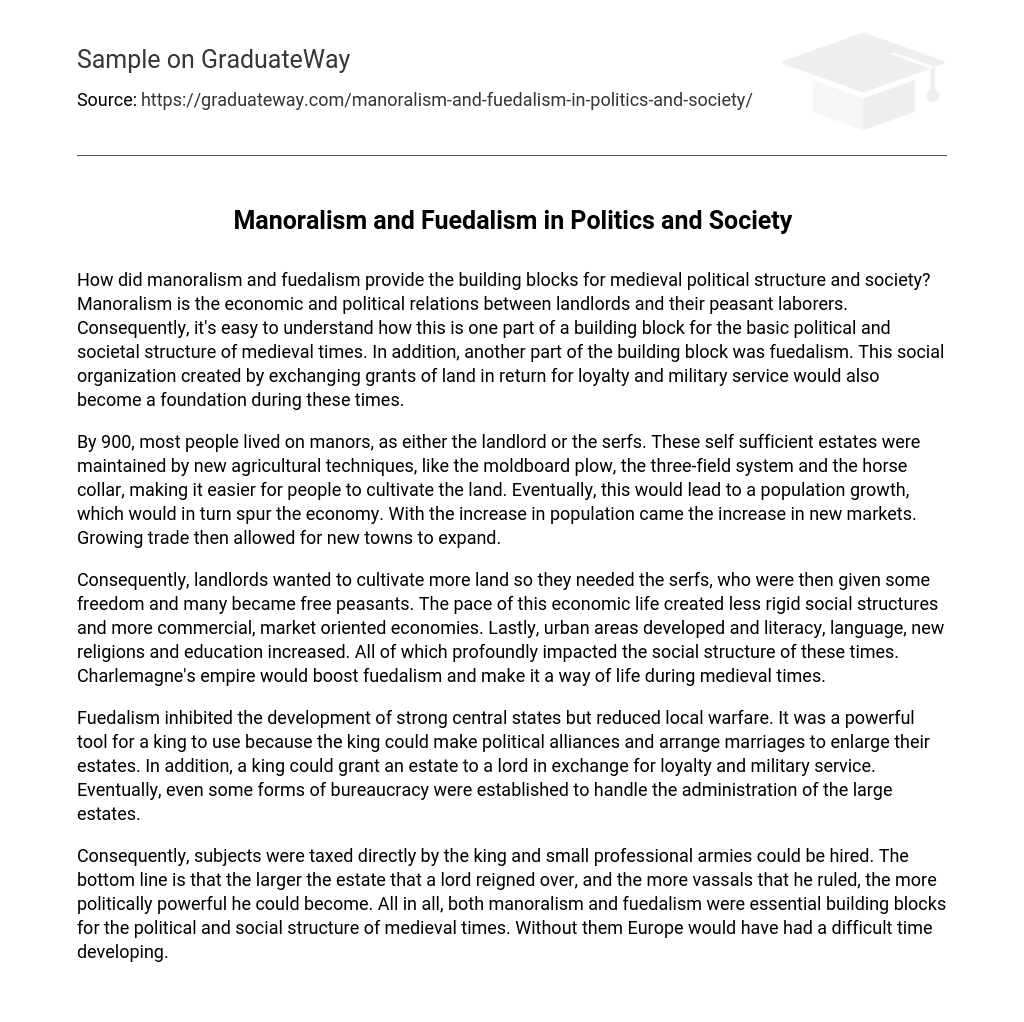How did manoralism and fuedalism provide the building blocks for medieval political structure and society? Manoralism is the economic and political relations between landlords and their peasant laborers. Consequently, it’s easy to understand how this is one part of a building block for the basic political and societal structure of medieval times. In addition, another part of the building block was fuedalism. This social organization created by exchanging grants of land in return for loyalty and military service would also become a foundation during these times.
By 900, most people lived on manors, as either the landlord or the serfs. These self sufficient estates were maintained by new agricultural techniques, like the moldboard plow, the three-field system and the horse collar, making it easier for people to cultivate the land. Eventually, this would lead to a population growth, which would in turn spur the economy. With the increase in population came the increase in new markets. Growing trade then allowed for new towns to expand.
Consequently, landlords wanted to cultivate more land so they needed the serfs, who were then given some freedom and many became free peasants. The pace of this economic life created less rigid social structures and more commercial, market oriented economies. Lastly, urban areas developed and literacy, language, new religions and education increased. All of which profoundly impacted the social structure of these times. Charlemagne’s empire would boost fuedalism and make it a way of life during medieval times.
Fuedalism inhibited the development of strong central states but reduced local warfare. It was a powerful tool for a king to use because the king could make political alliances and arrange marriages to enlarge their estates. In addition, a king could grant an estate to a lord in exchange for loyalty and military service. Eventually, even some forms of bureaucracy were established to handle the administration of the large estates.
Consequently, subjects were taxed directly by the king and small professional armies could be hired. The bottom line is that the larger the estate that a lord reigned over, and the more vassals that he ruled, the more politically powerful he could become. All in all, both manoralism and fuedalism were essential building blocks for the political and social structure of medieval times. Without them Europe would have had a difficult time developing.





